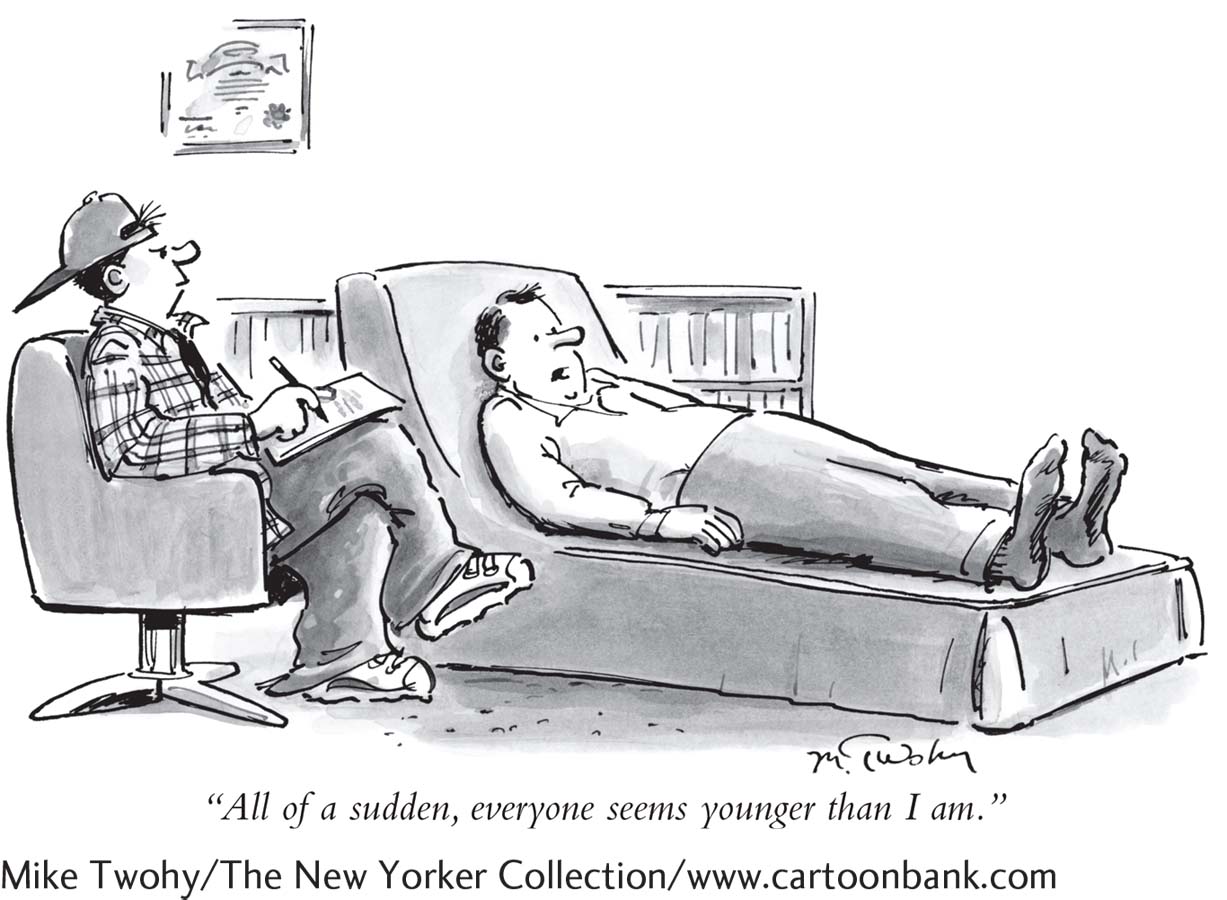15.5 Psychotic Disorders in Later Life
Elderly people have a higher rate of psychotic symptoms than younger people (Colijn et al., 2015; Devanand, 2011). Among aged people, these symptoms are usually caused by underlying medical conditions such as neurocognitive disorders, the disorders of cognition that you will read about in the next section. Some elderly people, though, suffer from schizophrenia or delusional disorder.
Actually, schizophrenia is less common in older people than in younger ones. In fact, many people with schizophrenia find that their symptoms lessen in later life (Dickerson et al., 2014). Improvement can occur in people who have had schizophrenia for 30 or more years, particularly in such areas as social skills and work capacity, as we are reminded by the remarkable late-
Another kind of psychotic disorder found among the elderly is delusional disorder, in which people develop beliefs that are false but not bizarre (Colijn et al., 2015). This disorder is rare in most age groups—

Summing Up
DISORDERS OF LATER LIFE The problems of elderly people are often linked to the losses and other stresses and changes that accompany advancing age. As many as 50 percent of the elderly would benefit from mental health services, yet fewer than 20 percent receive them. Depression is a common mental health problem among those in this age group. Older people may also suffer from anxiety disorders. Between 4 and 6 percent exhibit alcohol use disorder in any given year, and many others misuse prescription drugs. In addition, some elderly people display psychotic disorders such as schizophrenia or delusional disorder.